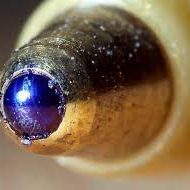My research question aims to explore how a digital immigrant/visitor could become proficient in a digital skill in order to teach a digital resident/native. I have begun to find material which discusses this theme and was interested to read this piece from ARTNET which suggests that art educators are struggling to keep up with current emerging technologies. Referenced in the article is a 2019 State of Art Education Survey which shows that 52.2 % of art teachers want to learn more about teaching digital art effectively, but only 21.9 % of art teachers feel comfortable actually teaching a digital arts curriculum. This has been my experience with some colleagues being excited by learning digital skills compared with others actively avoiding anything digital.
Colleges really need to address this if they are to stay up with the game, never mind be leading it. This piece suggests that colleges are now realising that they need to move quickly in order to catch up with the developments and I would argue that their first priority is to offer quality training to improve the skills of their art-educators. My experience of learning how to use Photoshop through taking an internal UAL course was not great – the tutor could not cater for the wide-ranging abilities of her students and this was extremely problematic. This was all that was on offer at the time (5 yrs ago), but since then we’ve been encouraged to access Linkedin Learning which is much more efficient on many levels and I’ve found that to be succinct and accessible. I would like to interview colleagues to find out how they learn and which of the resources available are most likely to appeal to them and why.
There are currently programmes in many colleges, offering students the opportunity of learning to teach on the job such as ArtsTemps or student-ambassadorships which have many benefits. The students, as recent graduates, know the student experience in the moment and consequently can offer first-hand advice to educators and students alike. As well as knowing the college system, they will know what the weak points are, so their input could be vital in shaping the college’s offer. Alongside the experience of established arts-educators, this could be a powerful combination.
The article I’m referencing can be found here: https://news.artnet.com/art-world/art-school-tech-adapt-1742802 Sabrina Faramarzi, December 24, 2019.
‘One thing is clear: many artists won’t just naturally begin incorporating technology into their work without schools teaching them how. In a 2016 report, “Discovering the Post-Digital Art School,” arts educators Charlotte Webb and Fred Deakin note that “the notion of a current generation of young digital natives who inherently understand the internet with all its culture, grammar, and protocols, and who can effortlessly create innovative digital content and projects in ways that their teachers could never understand, is now acknowledged as simply a paranoid myth.
Are you a sculptor? A painter? An illustrator? For decades, art students starting out have asked themselves these questions. But these categories could look very different in the near future, as art schools belatedly attempt to incorporate new technology into their curricula.
Earlier this year, one of the world’s most prestigious art schools, The Royal College of Art in London, announced plans to expand its curriculum to include science and technology. It was a watershed moment that suggested some art educators are finally understanding that these subjects need to be part of the academy for it to survive the digital age.
But how can art schools adapt to this new paradigm, and how will the changes inform the kind of art that will be made in the future?
There’s a creative computing course currently being instigated at Camberwell and I would really like to get views on the ideas raised in this article from the staff and students of that course.
